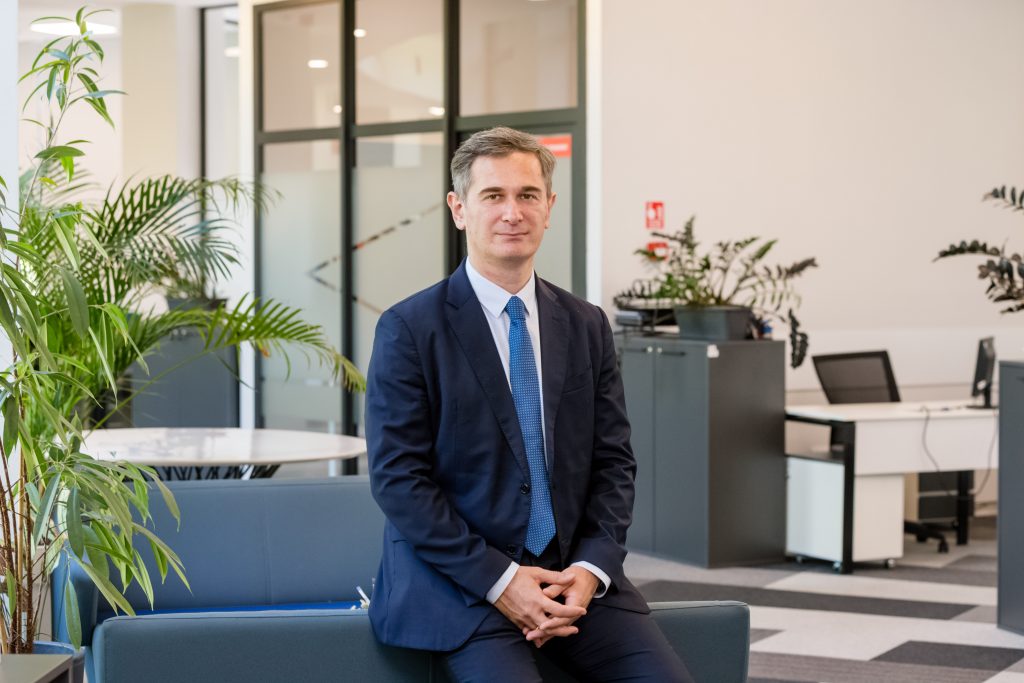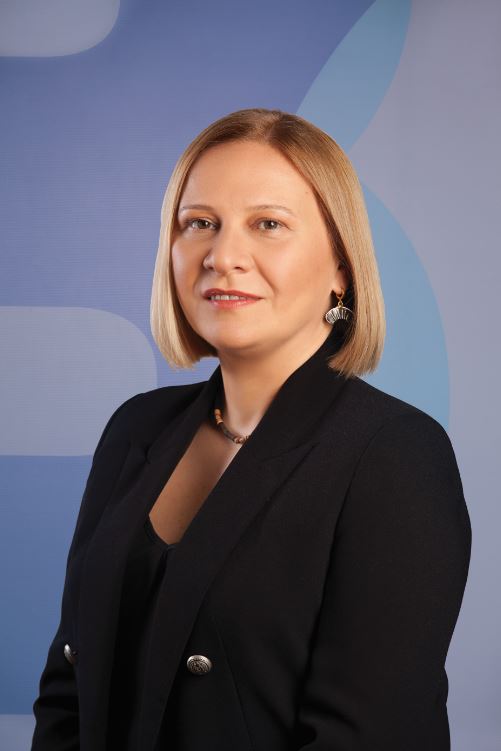Projects of USAID Georgia for Partnership Promotion
Encouraging partnership projects and promoting sustainable economic development in this way is a priority for Georgia’s friends, including the united states. A number of important projects are being implemented through the united states agency for international development (usaid). One of them is the program YES-Georgia, which provides support to young people and female entrepreneurs. Under the USAID-funded program, crystal, a financial engagement organization, allows entrepreneurs to grow their own businesses.
Marika Olson, USAID / Economic Growth Office Director, USAID/Georgia, and Archil Bakuradze, Chairman of the Supervisory Board of Financial Inclusion Organization Crystal, discuss USAID’s efforts to promote partnership with the private sector and the results and importance of this partnership.
MARIKA OLSON, USAID / GEORGIA ECONOMIC DEVELOPMENT OFFICE DIRECTOR
Programs implemented by USAID for Inclusive Economic Growth in Georgia facilitate cross-sectoral partnerships. What are the challenges facing multi-sectoral projects? What are the benefits of this cooperation for the participating parties?
Development is a complex concept for USAID. COVID-19 Pandemic has shown us that economic activity is not segregated from civil society; just as democratic institutions are not disconnected from the education system. With this factor in mind, we have developed USAID’s Strategy for 2020-25 to support Georgia’s development.
We are moving to a new stage of partnership to strengthen the business environment in Georgia and better involve private sector in the development of the country. We plan to collaborate with the private sector as a limitless source of ideas, innovations, expertise, advocacy, investment, and resources.
With our support, a favorable relationship is formed between the sectors: for example, agriculture is linked to the restaurant industry. As a result, farmers have access to large markets, while restaurants have access to stable and quality products.
One of the programs implemented by you, which is well known in Georgia, is the program of support for young and female entrepreneurs, which is known as YES-Georgia. What is its purpose and how is business involved?
A strong private sector needs talented entrepreneurs who, along with experience, have the ambition to contribute to business expansion and economic recovery. All this will help to create high-paying jobs for the population. Since 2016, YES-Georgia has been a leading USAID Entrepreneurship Support Program that helps young people and women acquire the skills needed to succeed.
From 2021, we pay special attention to women entrepreneurs, because despite their good education and great potential, they still face significant challenges. This is mainly due to the fact that they have fewer financial resources to start their own business.
YES-Georgia helps women entrepreneurs overcome these challenges and, together with our partner microfinance organization Crystal, offers start-up capital, business services and participation in USAID-supported trainings. This successful partnership is a good example of how USAID is working with the private sector for sustainable development, which in this case means economic growth based on women empowerment and entrepreneurship.
During the pandemic, we deepened our cooperation with the microfinance organization “Crystal”. Last year, together with the United States Agency for International Development Finance Corporation and the Swedish International Development Agency, we launched a new program in which we will provide an interest-free guarantee loan to Crystal from the private sector. With an eight- year guarantee loan, it will be able to extend the loan guarantee to more than 5,000 small and medium-sized entrepreneurs, mainly women business owners and business representatives operating in the regions.
What plans does USAID have to further strengthen corporate sustainability and multisectoral cooperation in Georgia?
In May, we launched a new program – “Private Sector for Vocational Education”, which, together with private business and business associations, helps students, job seekers and professionals to acquire the skills needed for professional growth, which will also help the Georgian economy.
Low-skilled staff is one of the reasons why businesses fail to expand. The new program will collaborate with the private sector. Gaps in human resources will be identified, study programs and trainings will be co- financed. The goal of the program is to enable companies to hire staff with necessary skills; the priority is to train staff who will meet the demands of an industry with growing potential, reduce unemployment and contribute to the development of an innovative economy. I encourage your readers interested in partnership issues to get in touch with this program.

ARCHIL BAKURADZE, CHAIRMAN OF THE SUPERVISORY BOARD OF FINANCIAL INCLUSION ORGANIZATION – CRYSTAL
The joint project of the Financial Inclusion organization–Crystal, Crystal Fund and USAID Georgia–which aims to empower women entrepreneurs in Georgia, is a good example of a successful multi-sectoral relationship. How did your collaboration start and how is this process going now?
The Youth and Women Entrepreneurs Support Project (YES GEORGIA) started in 2016, but in 2019, with the help of the well- known White House program Women’s Global Development and Prosperity Initiative (W-GDP), we were able to expand it and focus fully on women entrepreneurs.
Due to the global pandemic, 2020 was not an easy year, however, we were able to move almost all activities online. This restricted us to some extent, at the same time we discovered some positive aspects as well. Namely, the number of young entrepreneurs–school participants–has tripled.
The online debut of Buzz-Georgia turned out to be unexpectedly successful. It is a women’s economic empowerment network and training program that includes both leadership development as well as the fundamentals of entrepreneurship and finance.
In response to the problems caused by the pandemic, Crystal Consulting shared tips for women entrepreneurs to adapt to the new reality as part of a business mentoring program. Hopefully, this year we will be able to visit the regions and attract more interested female entrepreneurs. In April, we successfully conducted mobilization work in four municipalities of Imereti, which aroused great interest of potential participants of Buzz-Georgia.
This project serves the empowerment of women entrepreneurs, which is one of the targets of sustainable development. What is the vision of your organization in this direction and to what extent are women’s rights and gender balance ensured directly by Crystal?
Crystal is not only a responsible company that offers equal opportunities to women employees and invests in their development, but also a financial inclusion organization, serving 115,000 customers, about 60% of whom are women and most of them live in the regions. We finance working capital, fixed assets, and consumer needs, such as improving living conditions, health care and education; we offer equipment and vehicle leasing to women entrepreneurs with growth potential, as well as modern and practical business consulting and mentoring. Crystal was the first company in 2020 to issue women empowerment corporate obligations in the region.
In 2020, with the support of the United States Development Finance Corporation (DFC), USAID, and the Swedish Development Agency (SIDA), Crystal created a credit-guarantee mechanism that allows pandemic-affected entrepreneurs to access unsecured loans.
As for gender balance, so far one out of six members of the Supervisory Board–as well as out of six-member management team–is a woman. She successfully manages one of the most difficult and ambitious business directions of the company.
The situation is much better in middle management, which is no less important for the success of the company. As a responsible company, we acknowledge the role of engaging women in management positions, and we will strengthen this direction in the future.
What other values recognized by international standards is your company’s corporate responsibility based on? What contributes to the sustainable development of Crystal?
We pay great attention to the environmental, social, and corporate governance (ESG) aspects. We have chosen and are committed to fully adhering to several world-renowned standards, such as the Sustainable Development Goals, the UN Principles for the Women Economic Empowerment, the UN Global Compact, the Consumer Protection Campaign – Smart, the International Finance Corporation Environmental and Social Risk Management Framework, and the UK Corporate Governance Code.
We want to obtain a banking license, which requires compliance with the corporate governance code of commercial banks. We have already done important preparatory work in this regard. As for the impact on the environment, which is an important component of sustainable development, Crystal works both in terms of energy saving and renewable energy. We have ambitious plans to prevent forest degradation and use solar energy.
How important is the partnership between business and non- governmental sector and what are its consequences both in the short and long term?
Crystal has a multifaceted and interesting relationship with non-governmental organizations. Given the company history, the DNA of the non-governmental sector is still strong in our organizational culture. Proof of this is that we take special care of our employees, our customers, we have a large-scale corporate social responsibility program that would be unthinkable without collaborating with NGOs.
What are your goals for future partnership projects and what type of activities do you plan to implement?
Crystal still has a long way to go to fulfill the mission of the financial inclusion organization. In addition to traditional partners, collaborative projects are planned with the education sector, financial technology companies and non-governmental sector. For us, these institutions are a source of talent, innovation, and expertise in various fields. Responsible, open, and transparent relationships with partners are integral parts of our corporate values.




 Search
Search





